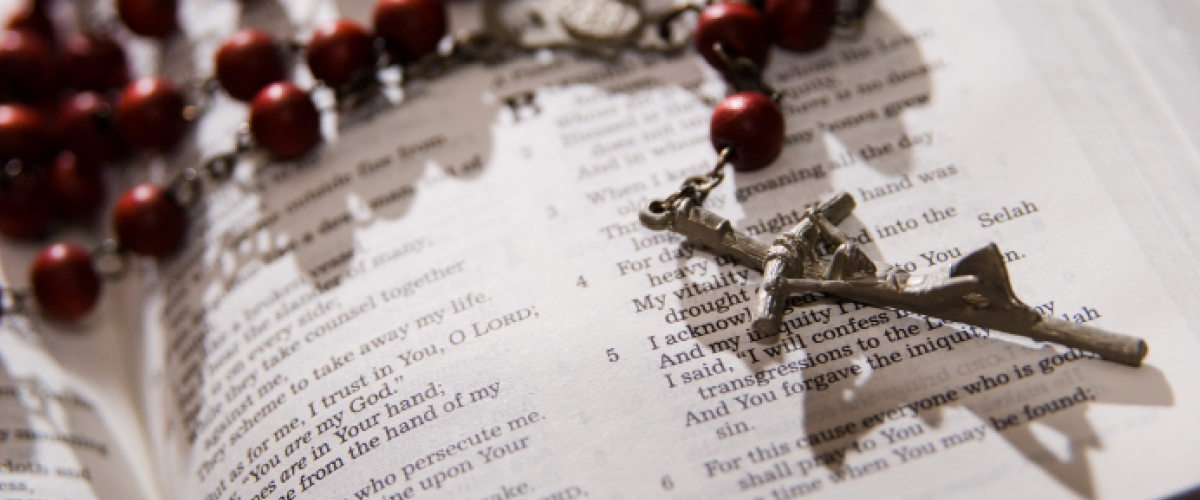Religious Education In Catholic Schools - De La Salle
Is religion compulsory in Catholic schools?
Catholic schools differ from public schools purely for the advancement in Religious Education. Studying religious education is a significant focus and teaching within Catholic schools, and even more so through the formation and programs in the Lasallian institute and associated schools. Studies of Religion (Religious Studies) I and II, are compulsory subjects to have in the Higher School Certificate within all Catholic High Schools. From year 7-12, students do a unit of religion each term, and then have the choice in year 11 and 12 to study either one or two units of religion. A Catholic Education is not limited to only learning about the Catholic faith and tradition. The curriculum is centred around all religions, teaching, research and learning different religious practices, beliefs and values.
St John Baptist, de La Salle began a religious movement, to educate everyone equally, no matter where they are from or who they are. Lasallian schools across the District place a very high value on their religious education. Most schools have a De La Salle Brother as part of their staff to be a presence in the school of light and faith. Many Lasallian Catholic schools have Lasallian Youth Ministers that are present within the school to be an example of the Lasallian values within the Catholic school. Whether it be assisting with reflection days or mentoring younger students, the purpose of the role is to live out their religious faith, teaching and values.
Why is religious education important in schools?
Religion is taught to provide students with the best information of every religious faith, not just their religion. Mass, religious practises and liturgies take place each week, as well as prayer is often said daily and school mottos, chants, religious prayer and traditions are practised each day. Within Lasallian schools, students embrace the closing of prayer with, ‘St John Baptist de La Salle’ and respond with, ‘Pray for us’, Live Jesus in our Hearts, ‘Forever’.
Religion teachers and religious coordinators practice the faith within the teaching of a school. They do this through religious prayer, reflection days, retreats, conferences and sometimes larger events and immersion programs. Every school has a sacred and religious space, a Catholic Chapel, room or hall, dedicated to being a space of serenity and safe space to connect with God. Activities, events or moments of religious reflection are to take place in this designated space and allow students to escape the classroom, and separate their faith from their studies for a moment.
Receiving a religious education opens up a vast avenue for acceptance of different dynamics and communities within society. It allows you to have a heightened sense of generosity and willingness to help. The will of God can be a guiding light for students when undertaking their studies. The idea that God has a plan for them and no matter what they decide they have support and love around them, particularly from God, the Catholic community and through the teaching of St John Baptist, de La Salle.
How is religion taught in Catholic schools?
In the Catholic Christian tradition, education is a work of love and service. Schools research and seek to nurture and develop the faith of individuals in ways that are mindful of their cultural and religious identity. The schools are primarily a place for learning and teaching. Catholic schools create formative experiences that are inspired by Catholic faith and which resonate with the teaching of religious education in a School.
In a Catholic school all curriculum areas have a religious dimension which pervades the whole life of the school. While ‘religious education’ can be understood in a broad sense which encompasses the religious nature of the school life, there is also a core Learning Area called ‘Religious Education’ with a particular curriculum.
Teachers must have their accreditation to teach religious studies and Catholic education, and must have accreditation to teach in a Catholic school with suitably qualified Catholic teachers, who have met all the standards of tertiary education. This accreditation for teachers is specific to religious education in catholic schools and is a distinguishing element in teaching at a catholic school especially in religious education.
How is it taught in De La Salle Schools and how is this different?
Lasallian schools are committed to their faith, our religious Catholic community teaching, religious education and our spirit of service and compassion. Our Lasallian values, nurtures, challenges and encourages all our endeavours. We value our role in the international Lasallian network and strive for meaning, relevance and creativity to deliver a quality religious education for our young Catholics in a 21st century environment.
We follow the Lasallian five core principals, we do this by practising the five core principles as set forth by St John Baptist de La Salle:
-
Respect for all people: We honour and respect the dignity of all individuals.
-
Quality education: We engage in quality education together as students and staff by thinking critically and striving for personal best.
-
Inclusive community: We celebrate diversity and welcome all members to our community.
-
Concern for the poor and social justice: We are in solidarity with the poor and advocate for those without a voice.
-
Faith in the presence of God: We believe in the living presence of God in our students, in our community and in our world.
The benefits of receiving a religious education in school
Religious education in schools takes a number of forms across the various sectors and often plays an important part in the school curriculum. Religion forms a critical component of every culture and is fundamental to an understanding of the workings of human society.
The religious syllabus outlines a continuum of learning from Kindergarten all the way up until Year 12. It allows for research into the significance of the role of religion in society and specifically within Australia. It also places a great deal of emphasis on Aboriginal belief systems and spirituality. As the District is a multi-faith and multicultural society, syllabuses allow students to explore and research religious expression and also the place of religion in a global context.





